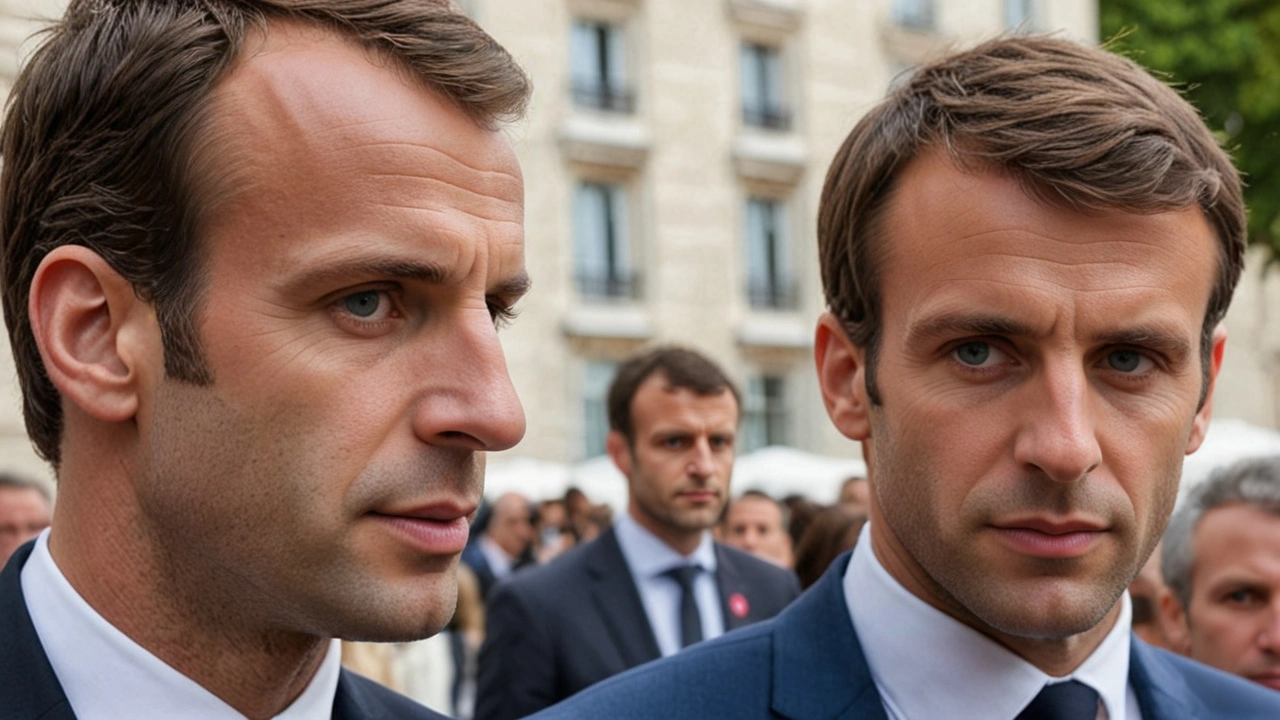French President Emmanuel Macron Faces Political Crisis as Prime Minister Resigns
On a tense Tuesday morning, French President Emmanuel Macron accepted the resignation of Prime Minister Gabriel Attal's government. This resignation comes after a chaotic snap election left the National Assembly without a clear majority. As a result, the current government will now function in a caretaker capacity until a new coalition can be forged. This political vacuum casts uncertainty over France's immediate future, particularly regarding upcoming events such as the much-anticipated Paris Olympics set to begin on July 26.
The Road to Resignation
The snap election held earlier this month resulted in a fractured National Assembly where no party emerged victorious with a decisive majority. Gabriel Attal, the outgoing Prime Minister, faced significant losses as Macron's allies failed to secure dominating seats. Unsurprisingly, Attal publicly ruled out the possibility of retaining his role as Prime Minister, leading to his government's resignation.
Political analysts suggest that the election's inconclusiveness stems from French voters' growing disillusionment with traditional political parties. The results echoed a fragmented sentiment that echoes wider European trends, where both far-left and far-right factions continue to gain traction. Attal will now focus on engaging with rival political groups to structure a new governing body, a task that appears increasingly formidable given the disparate nature of the incoming legislative assembly.
A Fractured Political Landscape
Central to the current crisis is the New Popular Front (NFP) alliance, a coalition that unites Socialists, Communists, Greens, and the hard-left France Unbowed (LFI). Despite securing the largest number of seats in the election, the NFP has struggled to propose a unified candidate for the prime ministerial position. This internal discord has exacerbated the difficulty of forming a new government, showing the challenges of maintaining a broad leftist coalition in modern French politics.
Amidst this turmoil, President Macron has signaled his ambition to form a right-of-centre majority. By doing so, he aims to sideline both the far-left LFI and the increasingly influential far-right National Rally (RN). Macron's strategic goal reflects his desire to establish a more centrist and stable political environment, though this approach comes with its own set of challenges and potential conflicts.
Caretaker Government's Role
As the political landscape remains unstable, the caretaker government retains its mandate to oversee essential day-to-day operations. This includes ensuring the smooth organization of significant national events like the Paris Olympics. The sports spectacle, opening on July 26, is anticipated to draw global attention and will require meticulous planning and resources, elements the current temporary governance must handle.
Experts warn, however, that prolonged political instability could impact France's ability to host the international sporting event seamlessly. From security arrangements to logistical coordination, the efficient function of the caretaker government remains under scrutiny. A timely resolution to the political deadlock is crucial for maintaining national and global confidence in France's governance capabilities.
Future Prospects
The intricacies of forming a new government take center stage as France meanders through its political labyrinth. Macron aims to meet representatives from various factions, seeking to broker agreements and navigate through political minefields. In a divided National Assembly, the importance of negotiation, compromise, and strategic decision-making cannot be overstated.
The political narrative in France has been witnessing ongoing shifts, echoing broader European uncertainties. With a master tactician like Macron at the helm, the coming weeks will likely see rigorous political discourse and maneuvers aimed at stabilizing the country. What remains to be seen is whether the fractured French political landscape will allow for such cohesion, or if the country is on the brink of deeper political fragmentation.
As this drama unfolds, the citizens of France watch closely, invested in the outcome that will shape their country's political and social fabric. The global community, too, keeps an eye on France, recognizing that the country's political health has far-reaching implications beyond its borders.

Write a comment